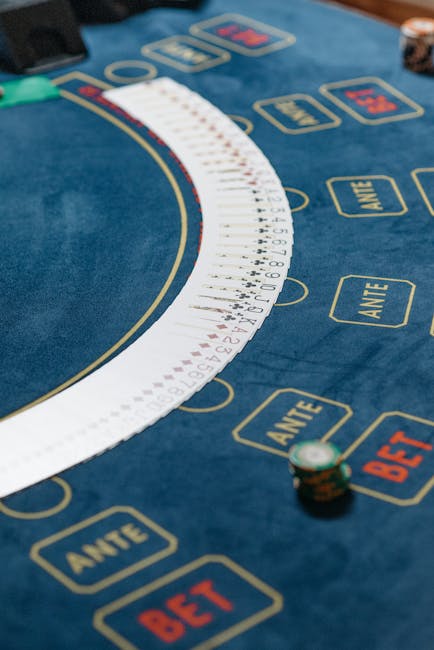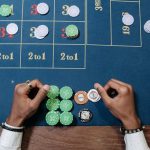
The Philippines has a rich sporting culture, with a plethora of talented athletes competing in various sports, both locally and internationally․ The country’s sports stadium, a hub for athletic competitions, plays a significant role in shaping the careers of Filipino players․ To succeed in the world of sports, athletes must employ effective strategies that cater to their specific needs and goals․
Understanding the Philippine Sports Landscape
The Philippines has a well-established sports infrastructure, with numerous stadiums, arenas, and training facilities․ The country has produced world-class athletes in various sports, including basketball, boxing, volleyball, and football․ To excel in these sports, Filipino players must focus on developing their skills, building their endurance, and perfecting their techniques․
Key Strategies for Success
Physical Conditioning
Filipino athletes must prioritize physical conditioning to compete at the highest level․ This includes:
- Strength Training: Building muscular strength and endurance through weightlifting, resistance band exercises, and plyometrics․
- Cardiovascular Training: Engaging in aerobic exercises, such as running, cycling, or swimming, to improve cardiovascular health and endurance․
- Flexibility and Mobility: Incorporating stretching and mobility exercises to maintain flexibility and range of motion․
Mental Preparation
Mental toughness is equally essential for success in sports․ Filipino athletes must develop strategies to manage stress, build confidence, and stay focused under pressure․ This can be achieved through:
- Mindfulness and Meditation: Practicing mindfulness and meditation techniques to reduce stress and improve mental clarity․
- Positive Self-Talk: Fostering a positive mindset through affirmations and self-encouragement․
- Goal Setting: Setting realistic goals and developing a plan to achieve them․
Technical Skills Development
Filipino athletes must continually work on developing their technical skills, specific to their sport․ This includes:
- Drills and Practice: Engaging in regular drills and practice sessions to improve technique and build muscle memory․
- Video Analysis: Reviewing game footage to identify areas for improvement and develop strategies for success․
- Coaching and Mentorship: Working with experienced coaches and mentors to gain valuable insights and guidance․
Support Systems for Filipino Athletes
A strong support system is vital for the success of Filipino athletes․ This includes:
- Family and Friends: Having a supportive network of family and friends who provide encouragement and motivation․
- Coaching and Training Staff: Working with experienced coaches and trainers who can provide guidance and expertise․
- Sports Psychologists: Collaborating with sports psychologists to develop mental toughness and resilience․
Success in Philippine sports requires a combination of physical conditioning, mental preparation, technical skills development, and a strong support system․ By employing these strategies, Filipino athletes can excel in their respective sports and bring pride to their country․
By focusing on these key areas, Filipino athletes can develop a winning mindset and achieve their goals in the world of sports․ With dedication, hard work, and the right strategies, they can succeed and make a name for themselves in the global sports arena․

Overcoming Challenges and Setbacks
Filipino athletes often face numerous challenges and setbacks in their pursuit of success․ Injuries, losses, and disappointments can be debilitating, but it’s essential to develop coping mechanisms to overcome these obstacles․
One effective way to deal with setbacks is to reframe failure as an opportunity for growth․ By analyzing mistakes and learning from them, athletes can develop resilience and bounce back stronger․ Additionally, setting realistic goals and celebrating small victories can help build confidence and motivation․
Nutrition and Recovery
Proper nutrition and recovery are crucial components of an athlete’s overall performance․ A well-balanced diet that includes essential nutrients, such as protein, complex carbohydrates, and healthy fats, can help support energy production and muscle recovery․
Athletes should also prioritize hydration and electrolyte balance to maintain optimal physical function․ Adequate sleep and rest are equally important, as they allow the body to recover from the physical demands of training and competition․
Mental Health and Wellness
The mental well-being of Filipino athletes is just as important as their physical health․ The pressures of competition, social media scrutiny, and personal expectations can take a toll on mental health․
Athletes can benefit from mindfulness practices, such as meditation and deep breathing, to manage stress and anxiety․ They should also prioritize self-care activities, like spending time with loved ones, engaging in hobbies, or seeking professional help when needed․
Building a Support Network
A strong support network is vital for the success of Filipino athletes․ This includes:
- Family and Friends: Having a supportive network of loved ones who provide encouragement and motivation․
- Coaches and Trainers: Working with experienced coaches and trainers who can provide guidance and expertise․
- Mentors and Role Models: Learning from experienced athletes and sports personalities who can offer valuable insights and advice․
The Future of Philippine Sports
The future of Philippine sports looks bright, with a new generation of athletes emerging to take on the world․ With the right mindset, support, and resources, Filipino athletes can continue to excel and bring pride to their country․
As the country continues to invest in sports infrastructure and programs, it’s essential for athletes to stay focused, motivated, and committed to their goals․ By doing so, they can inspire others and pave the way for a brighter future in Philippine sports․





